When it comes to achieving healthy and thick hair, the right vitamins and minerals can make all the difference. In this blog post, we will be discussing the best multivitamins for hair growth and thickness.
The importance of vitamins for hair growth
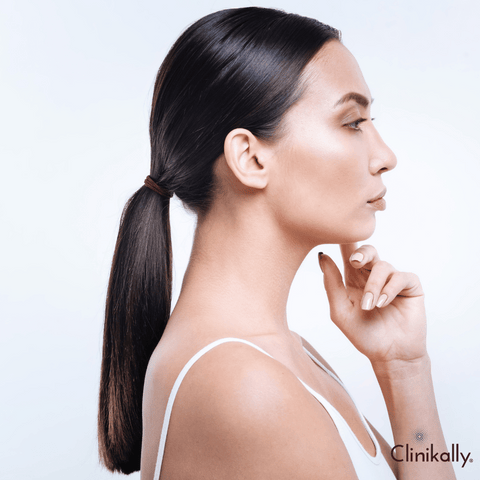
Hair growth is a complex process that can be influenced by a variety of factors, including genetics, nutrition, and overall health. Certain vitamins and minerals, such as vitamins A, B, C, D, and E, as well as B12 and biotin, play a crucial role in promoting healthy hair growth and thickness.
Essential nutrients for healthy hair follicles
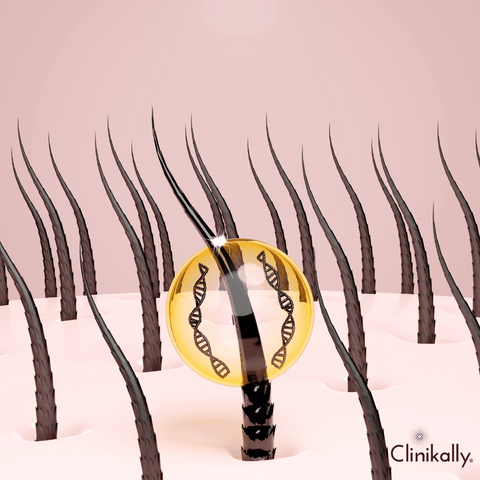
A variety of nutrients are required to support the growth and maintenance of healthy hair follicles. Some essential nutrients that are important for maintaining healthy hair follicles are:
-
Protein: Hair is primarily composed of protein, specifically keratin. Adequate protein consumption is essential for healthy hair growth. Lean meats, fish, eggs, dairy products, legumes, nuts, and seeds are all good sources of protein.
-
Iron: Iron is necessary for hair growth and follicle health because it transports oxygen to the hair roots. Red meat, poultry, fish, lentils, spinach, and fortified cereals are all high in iron.
-
Vitamins: Vitamin A, Vitamin C, Vitamin E, and Vitamin D all play important roles in hair health.
-
Omega-3 Fatty Acids: These healthy fats promote scalp health and may aid in the prevention of hair loss. Fatty fish (salmon, mackerel), flaxseeds, chia seeds, and walnuts are all good sources.
-
Biotin (Vitamin B7): Promotes the production of keratin, which is required for hair growth. Eggs, nuts, whole grains, and some fruits and vegetables are high in biotin.
-
Zinc: Aids in hair growth and repair. Oysters, beef, spinach, lentils, and pumpkin seeds are all high in zinc.
-
Selenium: A necessary mineral that aids in controlling the cycles of hair growth. Brazil nuts, fish, poultry, and eggs are good sources of selenium.
-
Silica: Enhances the elasticity and strength of hair. Foods high in silica include rice, oats, and bananas.
-
Copper: Essential for preserving the structure and the hair colour. Nuts, seeds, shellfish, and organ meats are foods high in copper.
-
Magnesium: May stop hair loss and aid in scalp health maintenance. Nuts, seeds, whole grains, and leafy greens are examples of sources.
Hair follicle health is best supported by a diet rich in nutrients and balanced enough to include a variety of nutrient-dense foods. While nutritional deficiencies can cause hair problems, it is critical to consult a healthcare professional before beginning any new supplements, especially if you suspect a deficiency or have underlying health conditions.
Impact of deficiencies on hair health
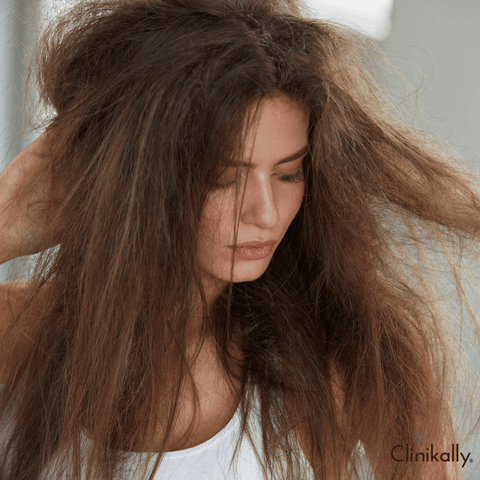
Deficiencies in certain nutrients can have a significant impact on hair health and contribute to a variety of hair-related issues. Here are some examples of how specific deficiencies can affect hair health:
-
Protein Deficiency: A lack of protein can cause hair thinning, weakened hair structure, and hair loss. Because hair is primarily composed of protein (keratin), a lack of protein in the diet can inhibit hair growth, resulting in brittle, dull, or slow-growing hair.
-
Iron Deficiency (Anaemia): Iron deficiency can result in telogen effluvium, a type of hair loss in which hair enters the resting phase prematurely and falls out. Anaemia can impair the ability of the blood to carry oxygen, affecting the growth cycle of hair follicles and resulting in hair shedding.
-
Vitamin D Deficiency: Low vitamin D levels have been linked to hair loss and alopecia. Vitamin D is involved in the formation of new hair follicles and may help to maintain healthy hair growth cycles.
-
Excess or Deficiency of Vitamin A: Both excess and deficiency of vitamin A can contribute to hair loss. While insufficient vitamin A intake can cause dry, brittle hair, excessive vitamin A intake can cause hair thinning.
-
Biotin (Vitamin B7) Deficiency: A lack of biotin has been linked to hair loss, brittle hair, and even colour changes in the hair. Biotin aids in the production of keratin, which is an important structural component of hair.
-
Vitamin C Deficiency: A lack of vitamin C can cause hair to become weak, resulting in dryness and increased hair breakage. Vitamin C is essential for collagen production, which is necessary for hair structure.
-
Zinc deficiency: Zinc aids in the growth and repair of hair tissue. Its deficiency can cause hair loss and even stunt hair growth, resulting in thinning hair.
-
Omega-3 Fatty Acid Deficiency: A lack of omega-3 fatty acids can cause a dry scalp and dry, brittle hair. These fats are essential for keeping the scalp healthy and promoting hair growth.
-
Selenium Deficiency: Selenium deficiency may contribute to hair loss and slow hair growth. Selenium is required for the formation of hair follicles.
-
Copper Deficiency: Inadequate copper levels can affect hair pigmentation, resulting in premature greying and changes in hair texture.
It is important to note that while a lack of these nutrients can have an impact on hair health, an excess of certain vitamins or minerals can also have a negative impact. Maintaining a balanced diet rich in nutrient-rich foods is essential for overall health, including hair health. If you suspect a nutrient deficiency or have significant hair-related concerns, consult a healthcare professional for proper evaluation and guidance.
What is good for hair growth and thickness?

Hair growth and thickness are influenced by a variety of factors, including genetics, general health, and proper hair care techniques. The following methods and advice can encourage hair development and increase thickness:
-
A healthy diet that is rich in protein, iron, and other essential vitamins and minerals is important for hair growth and thickness.
-
Herbal supplements such as saw palmetto, green tea, and ginseng have also been known to promote hair growth.
-
Scalp massages with essential oils can also improve blood circulation to the scalp, which in turn can promote hair growth.
See a dermatologist or other healthcare provider if you're worried about hair loss, thinning, or any underlying medical conditions that may be influencing the growth of your hair. After evaluating your situation, they can suggest the best courses of action to encourage hair growth and thicken your hair.
Vitamins for hair loss and hair thickness
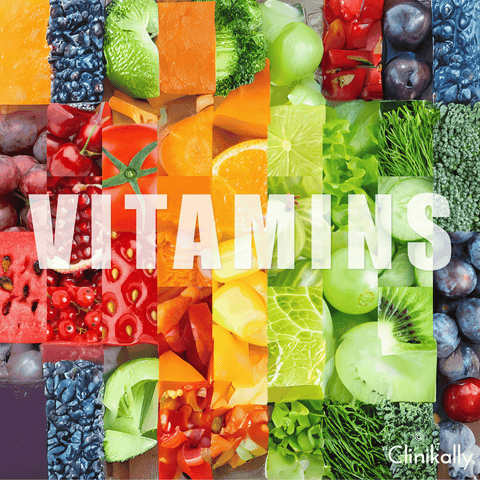
A deficiency in certain vitamins can lead to hair loss and thinning. These include Vitamin D, Iron, and B12. Incorporating these vitamins in the form of supplements or through a diet can help support healthy hair growth and thickness.
Role of Omega-3 fatty acids in hair growth

Omega-3 fatty acids are essential for overall health and also contribute significantly to healthy hair growth. These essential fatty acids are important for several reasons:
-
Scalp Health: Omega-3 fatty acids, particularly EPA (eicosapentaenoic acid) and DHA (docosahexaenoic acid), help nourish hair follicles by promoting a healthy scalp environment. A well-nourished scalp can promote optimal hair growth conditions.
-
Anti-Inflammatory Properties: Omega-3 fatty acids have anti-inflammatory properties that can help reduce scalp inflammation. Inflammation is linked to certain scalp conditions that can impede hair growth or result in hair loss.
-
Moisturization: These fatty acids aid in the preservation of the natural oils in the scalp, which keeps the hair moisturised. Adequate moisture is necessary to avoid dry, brittle hair that is prone to breakage.
-
Stimulating Hair Follicles: Omega-3 fatty acids aid in the production of hormones and proteins required for hair growth. They help to increase blood circulation to the scalp, provide nutrients to hair follicles, and promote healthy hair growth.
-
Preventing Hair Loss: Omega-3 fatty acids can help prevent hair loss and promote hair thickness by strengthening the structure and strength of the hair.
Omega-3 fatty acid sources include fatty fish (such as salmon, mackerel, and sardines), flaxseeds, chia seeds, walnuts, and certain fortified foods or supplements. While omega-3 fatty acids are beneficial to hair health, they work best when combined with a well-balanced diet rich in other nutrients. A varied nutrient-rich diet promotes overall health, including the health of the scalp and hair follicles. If you are thinking about adding omega-3 supplements to your diet or making significant dietary changes, it is best to seek personalised advice from a healthcare professional or a registered dietitian.
Minerals crucial for hair strength and growth
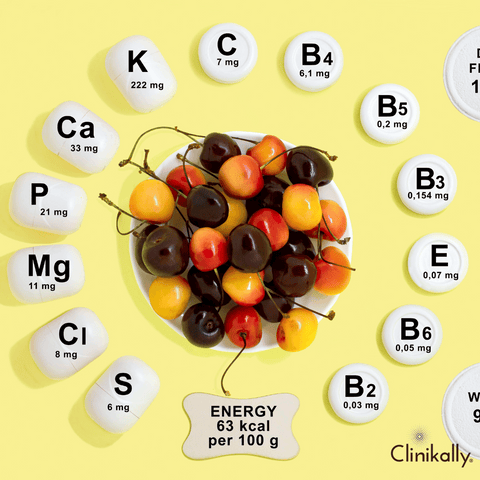
Several elements are crucial for keeping strong, healthy hair and promoting its growth. The following minerals are essential for healthy hair development and strength:
-
Iron: Iron is essential for proper hair growth and strength because it aids in the production of haemoglobin, which transports oxygen to hair follicles. Iron deficiency (anaemia) can cause hair shedding or loss.
-
Zinc: Zinc is essential for maintaining hair follicle health and promoting hair growth. It aids in the repair and growth of tissues by maintaining the oil glands around hair follicles.
-
Selenium: Selenium is a trace mineral that helps the body produce antioxidants that protect hair follicles from free radical damage. It promotes scalp health and may help with hair growth.
-
Copper: Copper is involved in the production of melanin, the pigment that gives hair its color. It also contributes to the strength and support of the hair's structure.
-
Magnesium: Magnesium helps to maintain scalp health and hair follicle function. It promotes blood circulation to the scalp, ensuring that hair follicles receive adequate nutrients.
-
Silica: Silica is necessary for maintaining strong and healthy hair. It promotes the growth of collagen, a protein that is essential for hair structure and elasticity.
-
Sulphur: Sulphur is a necessary component of keratin, the protein that makes up hair. It helps with hair strength, structure, and growth.
The minerals required for the healthiest possible hair can be obtained from a diversified and balanced diet. But it's also critical to lead a healthy lifestyle overall and seek individualised guidance from a qualified nutritionist or healthcare expert, particularly if you have specific concerns about the health of your hair or suspect any deficiencies.
Herbal supplements for hair growth

It's thought that several herbal supplements can strengthen and encourage hair growth. Though these supplements are widely utilised, there is frequently little scientific proof to support their effectiveness in causing noticeable hair growth. As each person's experience with supplements varies, it is best to speak with a healthcare provider before beginning any new supplement regimen. The following herbal supplements are frequently linked to promoting hair growth:
-
Saw Palmetto: Inhibits the production of DHT, a hormone that can cause hair loss.
-
Green Tea: Contains catechins that promote hair growth by improving blood circulation to the scalp.
-
Ginseng: Stimulates hair growth by promoting blood circulation and nourishing the scalp.
It's important to conduct research and make sure the herbal supplements for hair growth are coming from reliable sources. Before adding any herbal supplements to your regimen, you should also speak with a medical expert or a certified nutritionist, particularly if you have any underlying medical concerns or are currently taking other drugs. They can evaluate any interactions or side effects and offer advice suited to your needs.
Hair growth supplements that actually work

Hair growth supplement that contain a combination of vitamins and minerals are known to be effective in promoting hair growth. It's important to note that before trying any new hair supplements its always a good idea to check with a doctor who can give an accurate analysis of your hair and scalp condition and recommend the best treatment plans suitable for you. At Clinikally, you can book a online dermatologist consultation from leading skin and hair experts in India hassle-free and get a personalized treatment plan delivered directly to your doorstep.
Natural herbs and oils for enhancing hair growth
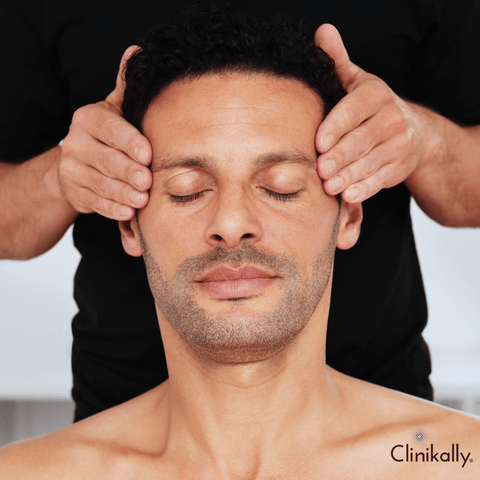
Several natural herbs and oils are thought to promote hair growth and overall hair health. Here are a few popular examples:
Herbs:
-
Amla (Indian Gooseberry): Amla, which is high in vitamin C and antioxidants, nourishes the scalp, strengthens hair follicles, and stimulates hair growth.
-
Bhringraj (False Daisy): Bhringraj oil or extract, known for its hair growth properties, can help reduce hair fall and stimulate hair growth.
-
Fenugreek (Methi): Fenugreek seeds are high in proteins and nicotinic acid, both of which are beneficial to hair growth. They can be applied to the scalp as a paste or after being soaked overnight.
-
Hibiscus: The vitamin and amino acid content of hibiscus flowers and leaves nourish hair follicles, encouraging hair growth and delaying the onset of premature greying.
-
Rosemary: It is thought that using rosemary oil will increase scalp circulation and promote hair growth. It might also aid in halting hair thinning.
Oils:
-
Coconut Oil: Coconut oil, known for its moisturising properties, penetrates the hair shaft, strengthens hair, and reduces protein loss, promoting healthy hair growth.
-
Argan Oil: Argan oil, which is high in antioxidants and essential fatty acids, hydrates and nourishes the hair, thereby improving overall hair health.
-
Jojoba Oil: Jojoba oil can help balance oil production on the scalp and encourage hair growth because of its compositional similarity to the natural oils produced by the scalp.
-
Castor Oil: The antimicrobial qualities of ricinoleic acid in castor oil can support the maintenance of a healthy scalp and may even promote hair growth.
-
Almond Oil: Rich in vitamins and minerals, almond oil helps fortify and hydrate hair, encouraging hair growth and minimising breakage.
You may use these herbs and oils separately or in combination to create a variety of DIY hair masks, hair oils, and treatments. To make sure you're not allergic or sensitive to any new oils or herbs, it's crucial to conduct a patch test first. Furthermore, even if these natural treatments are well-liked, there may be conflicting scientific proof of their efficacy in promoting hair growth, so outcomes may vary. To find the best course of action for significant hair loss or ongoing issues, see a dermatologist or other healthcare provider.
Comparing herbal vs. synthetic hair growth supplements
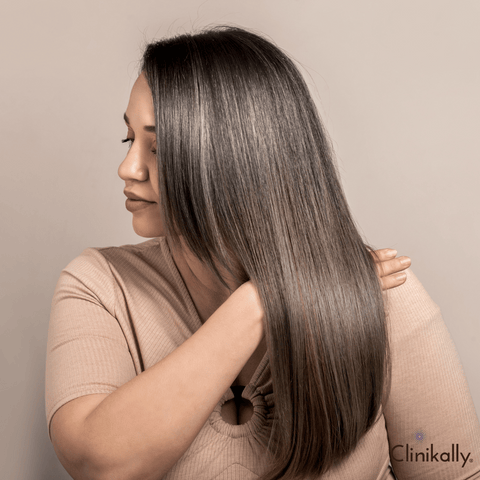
The composition, source, and potential effects on hair health of herbal and synthetic hair growth supplements differ. A side-by-side comparison follows:
Supplements for Herbal Hair Growth:
-
Natural Ingredients: Herbal supplements are derived from natural sources such as plants, herbs, roots, and fruits. They frequently include botanical extracts that are high in vitamins, minerals, and antioxidants, all of which promote hair health.
-
Potential Benefits: Some herbal supplements claim to stimulate hair growth, strengthen hair follicles, prevent hair loss, and improve overall hair health. Amla, bhringraj, and hibiscus are believed to nourish and promote hair growth.
-
Milder Approach: Herbal supplements are generally thought to be less harsh than synthetic supplements and may cause fewer side effects. Individual responses to herbal supplements, on the other hand, may differ.
-
Limited Scientific Evidence: Although herbal supplements have long been used to support hair health, there is frequently little scientific proof that they are effective in causing noticeable hair growth. Individual differences may exist in the outcomes, and efficacy may be subjective.
Supplements for Synthetic Hair Growth:
-
Synthetic Ingredients: The components of synthetic supplements are synthesised or combined in a laboratory setting. They frequently contain specific vitamins, minerals, amino acids, or medications that have been shown to promote hair growth.
-
Targeted Formulations: Synthetic supplements could have more precise formulas that provide specific amounts of nutrients or medications to treat hair loss or promote hair growth.
-
Possible Side Effects: Some synthetic supplements may have negative effects, especially if they contain drugs or large amounts of a specific vitamin. It is critical to follow the dosage instructions and consult with a healthcare professional before using this product.
-
Clinical Trials: Some synthetic supplements have undergone clinical trials to demonstrate their efficacy in promoting hair growth or slowing hair loss. Minoxidil, a medication commonly used to treat hair loss, is one example.
It's important to take into account personal preferences, possible side effects, and the underlying cause of hair problems when deciding between herbal and synthetic hair growth supplements. Speaking with a medical expert, especially a dermatologist or trichologist, can offer tailored advice depending on your unique needs, medical history, and hair condition. In addition, encouraging hair health and growth requires a balanced diet, a healthy lifestyle, and effective hair care techniques.
The bottom line: Achieving healthy and thick hair with the right multivitamins

In conclusion, multivitamins can play a significant role in promoting hair growth and thickness. It is important to ensure that the multivitamin you choose includes essential vitamins such as A, B, C, D, and E, as well as B12 and biotin. Herbal supplements and a healthy diet can also contribute to hair growth. Remember, hair growth is a complex process and a combination of a healthy diet, lifestyle and the right supplements can go a long way in achieving healthy, thick hair.
Multivitamins for hair growth
Multivitamins are frequently marketed as dietary supplements that might improve general health, including the development of hair. Their direct effect on major hair development may be limited, even if they contain a combination of vitamins and minerals that are necessary for many body processes, unless hair issues are caused by a lack in these elements. These vitamins, which are frequently included in multivitamins, may help maintain the health of hair:
-
Vitamin A: Promotes a healthy scalp by producing sebum, the natural oil that moisturizes hair.
-
Vitamin B: Helps to strengthen hair and prevent hair loss by providing oxygen to the hair follicles.
-
Vitamin C: Improves hair elasticity and prevents breakage by producing collagen.
-
Vitamin D: Regulates hair growth and prevents hair loss.
-
Vitamin E: Improves blood circulation to the scalp and promotes hair growth.
-
Vitamin B12: Helps to produce red blood cells which carry oxygen to the hair follicles.
-
Biotin: Also known as Vitamin H, is important for healthy hair, skin, and nails.
Although people with shortages or imbalances in certain nutrients may benefit from taking multivitamins, it's crucial to keep in mind that they are supplements and should not be used in place of a balanced diet. Also, if dietary deficits are not the direct cause of hair problems, their influence on hair development might not be as great. It is advised to speak with a healthcare provider before beginning any new supplement regimen, including multivitamins. They can determine whether deficiencies are causing your hair issues, examine your nutritional needs, and make recommendations that are appropriate for your particular circumstances.
Biotin or multivitamin for hair growth?
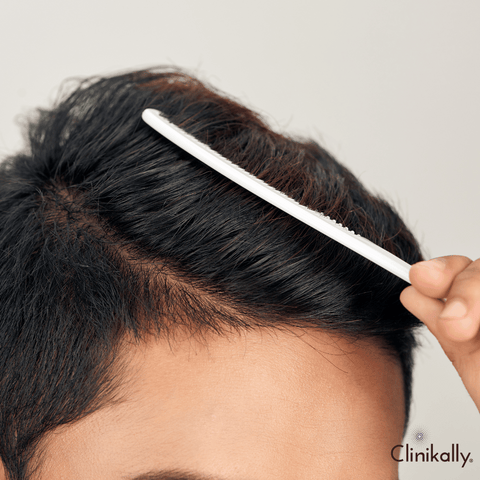
Biotin is a popular supplement for hair growth and thickness. It helps promote healthy hair by strengthening the hair shaft and preventing hair breakage. Multivitamins can also be effective for hair growth as they provide a variety of essential nutrients. A good multivitamin should include vitamins A, B, C, D, and E, as well as B12 and biotin.
The role of biotin in hair growth
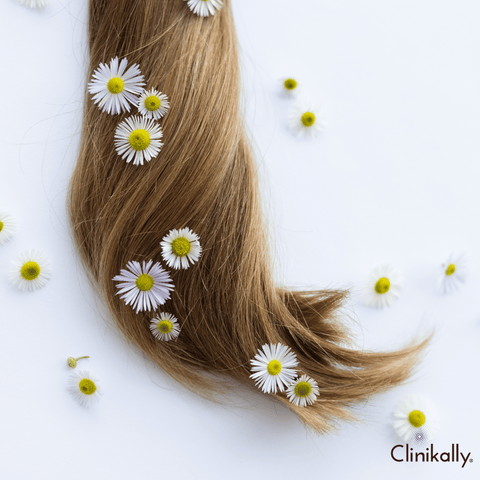
Biotin, also known as Vitamin H or B7, plays a vital role in hair growth and thickness. It helps to strengthen the hair shaft and prevent hair breakage. Foods such as eggs, nuts, and leafy greens are rich in biotin and can be included in your diet to support healthy hair growth.
Integrating multivitamins into daily hair care routines
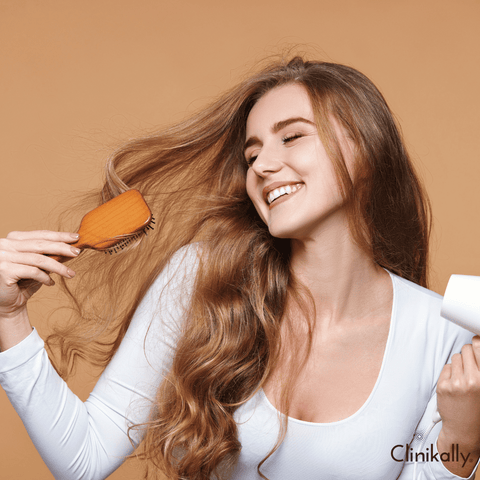
Integrating multivitamins into your daily routine can support overall hair health, especially if nutritional deficiencies contribute to hair problems. Here's how you can incorporate multivitamins effectively into your daily hair care routine:
-
Consult a Healthcare Professional: Consult a healthcare professional, such as a doctor or a registered dietitian, before beginning any new supplement regimen, including multivitamins for hair health. They can assess your nutritional needs, identify any deficiencies, and recommend suitable supplements.
-
Select a High-Quality Multivitamin: Choose a high-quality multivitamin designed to support hair health. Look for vitamins (such as Biotin, Vitamin D, Vitamin E, and Vitamin C), minerals (such as Iron, Zinc, and Selenium), and other nutrients that promote hair growth and strength.
-
Follow Dosage Instructions: Follow the dosage instructions on the supplement packaging or as directed by your healthcare provider. Excessive intake of certain vitamins or minerals can have negative effects, so stick to the recommended dosage.
-
Take with Meals: Multivitamins are more easily absorbed when taken with food. Incorporate them into your breakfast or lunch routine to improve absorption and reduce stomach upset.
-
Consistency is Key: For best results, take the multivitamin consistently as part of your daily routine. Consistency ensures a steady supply of nutrients to support hair health over time.
-
Combine with a Healthy Diet: Multivitamins are supplements and should not be used in place of a healthy diet. To supplement the benefits of the multivitamin, eat a variety of nutrient-rich foods such as fruits, vegetables, lean proteins, whole grains, and healthy fats.
-
Monitor and adjust: Keep track of any changes in your hair's health, as well as how you feel while taking the multivitamin. Consult your healthcare professional if you experience any side effects or have any concerns.
-
Patience is Key: Because hair growth is a gradual process, results from multivitamin supplementation may take time. It may take several weeks, if not months, to see significant improvements in hair health.
Remember that, while multivitamins can supplement a healthy lifestyle and address nutritional deficiencies that affect hair health, they are not a panacea for hair problems. Addressing the underlying causes of hair problems, practising good hair care, managing stress, and living a healthy lifestyle are all important factors in promoting optimal hair health.








































